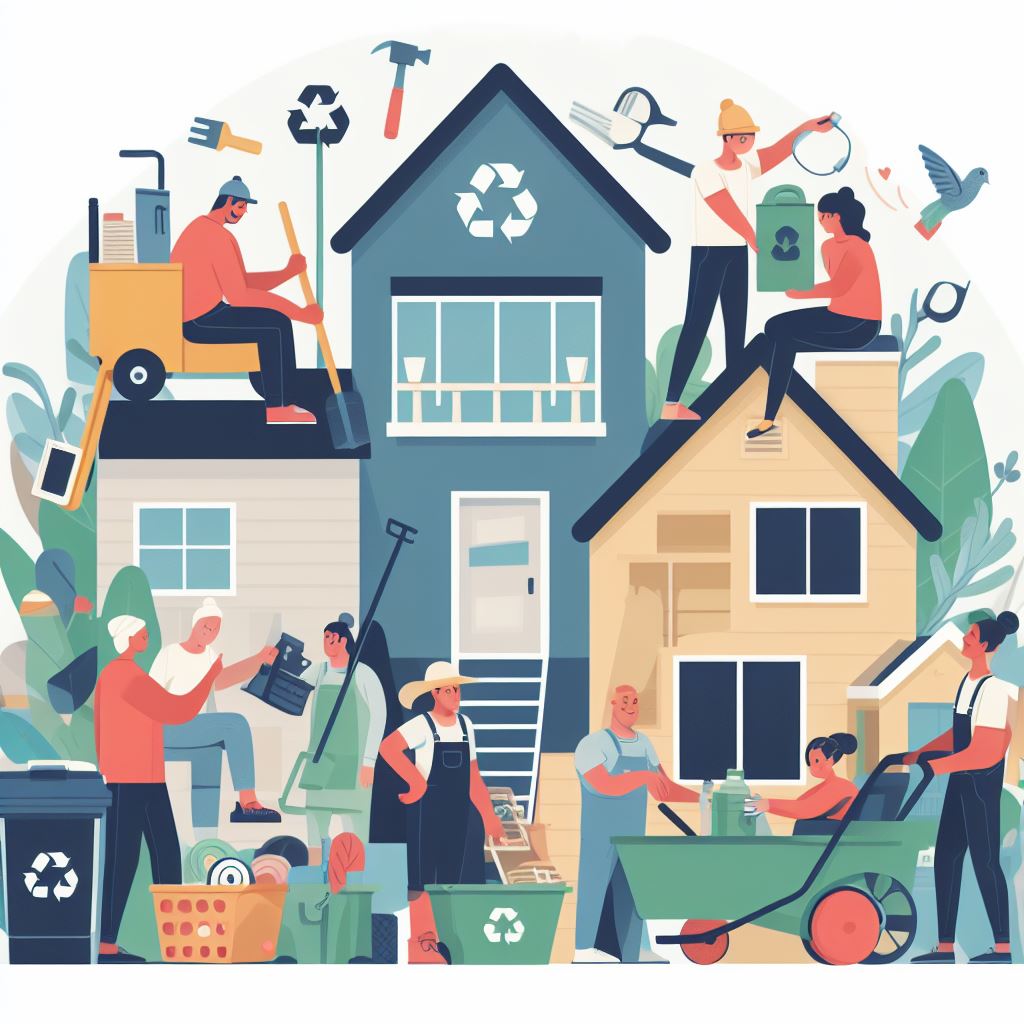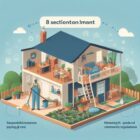Unveiling Tenant Duties in Subsidized Housing Programs

Are you curious about the responsibilities that come with living in subsidized housing programs? Wonder no more! This article unveils the hidden truth behind tenant duties in these programs.
From eligibility requirements to payment obligations, maintenance expectations to compliance with rules and regulations, we will delve into every aspect.
Stay informed and be prepared to navigate the world of subsidized housing like a pro. Let’s get started!
Key Takeaways
- Eligibility requirements, including income threshold, citizenship or immigration status, age, disability, or veteran status, vary by program and location, and meeting them is crucial for consideration of assistance.
- Rent is calculated as a percentage of income, utilities are separate from rent, and fulfilling payment obligations is necessary for the sustainability of the program, as late fees and eviction penalties can accumulate for missed payments.
- Maintenance and cleanliness expectations in subsidized housing programs include regular cleaning, prompt reporting of maintenance issues, proper waste disposal, and clean living spaces, which benefit both tenants and neighbors.
- Compliance with program rules and regulations involves familiarizing oneself with the rules, abiding by restrictions on pets, noise, smoking, and common areas, proper use and maintenance of the property, meeting financial obligations, and contributing to a respectful living environment. Additionally, reporting changes in income or household composition promptly and accurately is crucial to ensure the correct rental subsidy and avoid penalties or termination of assistance.
Eligibility Requirements
To determine if you qualify for subsidized housing programs, you must meet specific eligibility requirements. These requirements are put in place to ensure that those who are most in need of affordable housing are able to access these programs.
One of the main eligibility criteria is income. Typically, your income must fall below a certain threshold, which is determined by the government or the housing agency administering the program. This threshold takes into account factors such as the size of your household and the local cost of living.
Additionally, there may be requirements related to your citizenship or immigration status. Some subsidized housing programs are only available to U.S. citizens or eligible non-citizens. Other eligibility factors may include age, disability status, or being a veteran.
It’s important to carefully review the specific eligibility requirements for the subsidized housing program you’re interested in, as they can vary depending on the program and location. Meeting these requirements is crucial in order to be considered for subsidized housing assistance.
Rent and Utilities Payment Obligations
You have the responsibility to fulfill your rent and utilities payment obligations in subsidized housing programs. As a tenant in a subsidized housing program, it is important to understand the financial commitments you have towards your housing and utilities. This ensures the sustainability of the program and helps maintain the affordability for all participants.
To provide a clear understanding of the rent and utilities payment obligations, the following table outlines the typical breakdown:
| Payment Category | Description |
|---|---|
| Rent | The amount you are required to pay towards your housing unit. This is usually a percentage of your income. |
| Utilities | The cost of basic utilities such as water, electricity, and gas. This is typically paid separately from rent. |
| Late Fees | Additional charges incurred if you fail to make your rent or utilities payments on time. These fees can accumulate over time. |
| Eviction Penalties | Consequences of repeated failure to fulfill your payment obligations, which may result in eviction from the subsidized housing program. |
It is essential to budget and prioritize your payments to avoid late fees and potential eviction penalties. By fulfilling your rent and utilities payment obligations, you contribute to the sustainability and effectiveness of the subsidized housing program, ensuring its availability for those in need.
Maintenance and Cleanliness Expectations
As a tenant in a subsidized housing program, fulfilling maintenance and cleanliness expectations is crucial for the upkeep and overall functionality of your housing unit. It’s important to remember that maintaining a clean and well-maintained living space not only benefits you but also contributes to a positive living environment for your neighbors. Here are three key expectations to keep in mind:
- Regular cleaning: It’s your responsibility to keep your unit clean and tidy. This includes regular vacuuming or sweeping of floors, wiping down surfaces, and keeping bathroom and kitchen areas sanitized. Regular cleaning helps prevent the buildup of dirt, dust, and grime, ensuring a healthy and comfortable living environment.
- Reporting maintenance issues: If you notice any maintenance issues within your unit, such as a leaky faucet or a malfunctioning appliance, it’s crucial to report these problems to the housing management as soon as possible. Timely reporting allows for prompt repairs, preventing further damage and ensuring the safety and functionality of your unit.
- Proper waste disposal: Dispose of your garbage and recyclables in the designated bins provided by the housing management. Improper waste disposal not only creates a mess but can also attract pests and lead to unsanitary conditions. Following the proper waste disposal guidelines helps maintain a clean and pleasant living environment for everyone.
Compliance With Program Rules and Regulations
Fulfilling your duties as a tenant in a subsidized housing program includes abiding by the program’s rules and regulations to ensure a harmonious living environment. Compliance with program rules and regulations is crucial for the smooth functioning of subsidized housing programs and the well-being of all residents.
To begin with, it’s important to familiarize yourself with the specific rules and regulations of your subsidized housing program. These may include restrictions on pets, noise levels, smoking, and the use of common areas. By adhering to these rules, you contribute to creating a respectful and considerate living environment for everyone.
Additionally, compliance with program rules and regulations extends to the proper use and maintenance of the property. This includes keeping your unit clean and in good condition, reporting any necessary repairs promptly, and not engaging in activities that may cause damage to the property or pose a safety risk to yourself and others.
Furthermore, it’s essential to meet your financial obligations as a tenant. This means paying your rent on time and in full, as well as any other fees or charges outlined in the program’s rules and regulations.
Reporting Changes in Income or Household Composition
To ensure compliance with program requirements, promptly report any changes in your income or household composition. Reporting these changes is crucial as it allows the housing authority to accurately calculate your rental subsidy and ensure that you’re receiving the correct amount of assistance.
Here are three key points to consider when reporting changes in income or household composition:
- Income Changes: If your income increases or decreases, it’s important to notify the housing authority immediately. This includes any changes in employment status, salary, or additional sources of income. Failure to report these changes may result in an overpayment or underpayment of your rental subsidy.
- Household Composition Changes: Any changes in your household composition, such as the addition or removal of household members, must be reported promptly. This includes changes due to marriage, divorce, birth, or death. Accurate reporting ensures that the housing authority can adjust your rental subsidy accordingly.
- Timeliness: It’s crucial to report these changes as soon as they occur. Most subsidized housing programs require that changes be reported within a certain timeframe, typically within 10-14 days. Failure to report changes in a timely manner may result in penalties or even termination of your housing assistance.
Frequently Asked Questions
How Long Does It Take to Process an Application for Subsidized Housing?
It typically takes several weeks to process an application for subsidized housing. The length of time can vary depending on factors such as the number of applicants and the efficiency of the housing program.
Are Pets Allowed in Subsidized Housing?
Yes, pets are allowed in subsidized housing programs. However, there may be certain restrictions and guidelines that you must follow. It’s important to familiarize yourself with the specific rules and responsibilities regarding pets in your housing program.
Can Tenants Make Changes to the Interior of the Unit, Such as Painting or Installing New Fixtures?
Yes, tenants are allowed to make changes to the interior of the unit in subsidized housing programs. This includes painting and installing new fixtures. However, it is important to follow any guidelines or restrictions set by the housing program.
Are There Any Restrictions on Guests or Visitors in Subsidized Housing?
In subsidized housing programs, there may be restrictions on guests or visitors. These rules are in place to ensure the safety and security of all residents. Be sure to familiarize yourself with these guidelines to avoid any potential issues.
What Happens if a Tenant Violates Program Rules and Regulations?
If you violate program rules and regulations in subsidized housing, consequences can include eviction, termination of your housing assistance, or being placed on probation. It is important to understand and abide by the rules to maintain your housing.



